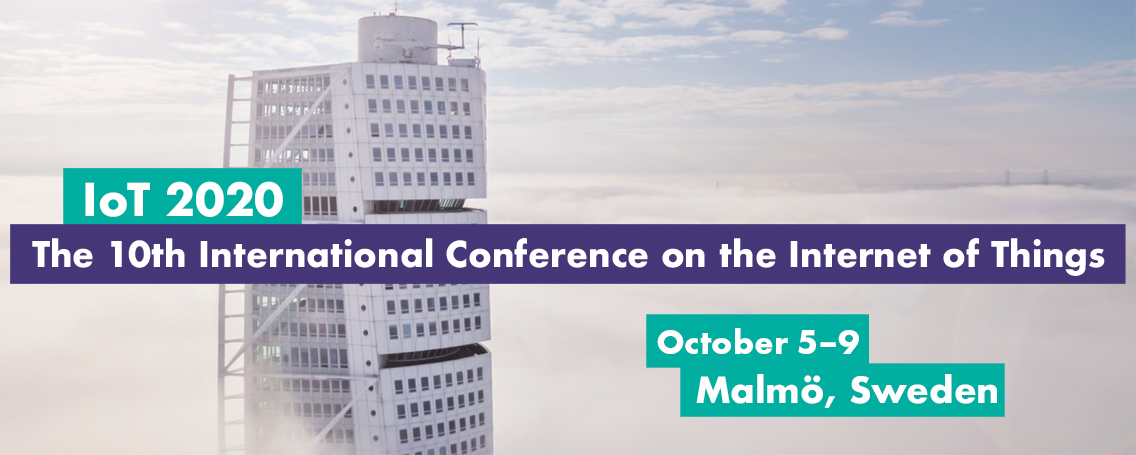Doctoral Consortium
Contact: nancy.russo@mau.se and kraemer@ntnu.no
The Doctoral Consortium is a special session of the conference where PhD students in the early phases of their research can receive advice in a constructive atmosphere and grow their research network. Students present and discuss their early research with other PhD students and a panel of established researchers in the area of the Internet of Things.
For the IoT 2020 Doctoral Consortium, we are seeking submissions of original (unpublished) early research by PhD students on all topics related to the development and adoption of the Internet of Things.
Topics
Possible topics include, but are not limited to:
- IoT Edge and Cloud Architectures
- Web of Things
- IoT Communication Technologies
- AI and Machine Learning for the IoT
- Sensing, Signal Processing, Actuation and Analytics
- Energy Efficiency and Sustainability in the IoT
- Real-world Applications, Deployments and Testbeds
- Interacting with the IoT
- Security, Privacy and Trust in the IoT
- Societal Impact of the IoT
Important Dates
- Submissions:
June 1, 2020New date: August 1, 2020 - Notifications:
June 15, 2020New date: August 15, 2020 - Camera Ready:
July 15, 2020New date: September 1, 2020
Preparing and Submitting Your PhD proposal
Students interested in participating in the Doctoral Consortium should submit a 4 page abstract (including references) formatted in the most recent ACM SIGCHI Extended Abstracts Format (Latex, Word, Overleaf) via email to the DC chairs Nancy Russo and Frank Kraemer (nancy.russo@mau.se and kraemer@ntnu.no) describing in English their research question / problem to solve, its position with respect to the state of the art, their research plans and methodology, and results achieved so far.
Accepted abstracts will be included in the adjunct conference proceedings (unless opted out by the student), listed on DBLP and published via the ACM Digital Library. We plan to allocate for each student a 20-minute time slot, with 13 minutes for a presentation and 7 minutes for oral feedback by at least two senior faculty members or researchers. The presentation will be intimate to encourage interaction, with only the session organizer, review panel, and other student DC presenters in attendance. Students are encouraged to submit work at an early stage of development to get the greatest benefit from the feedback from senior researchers. Students are expected to attend all presentations in their session.
